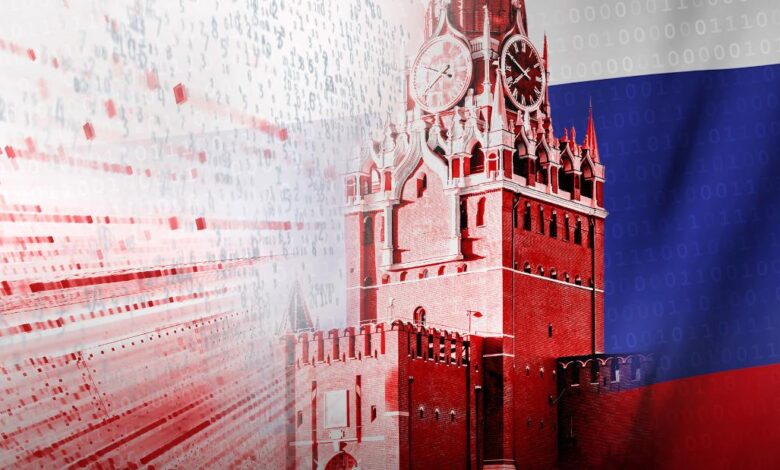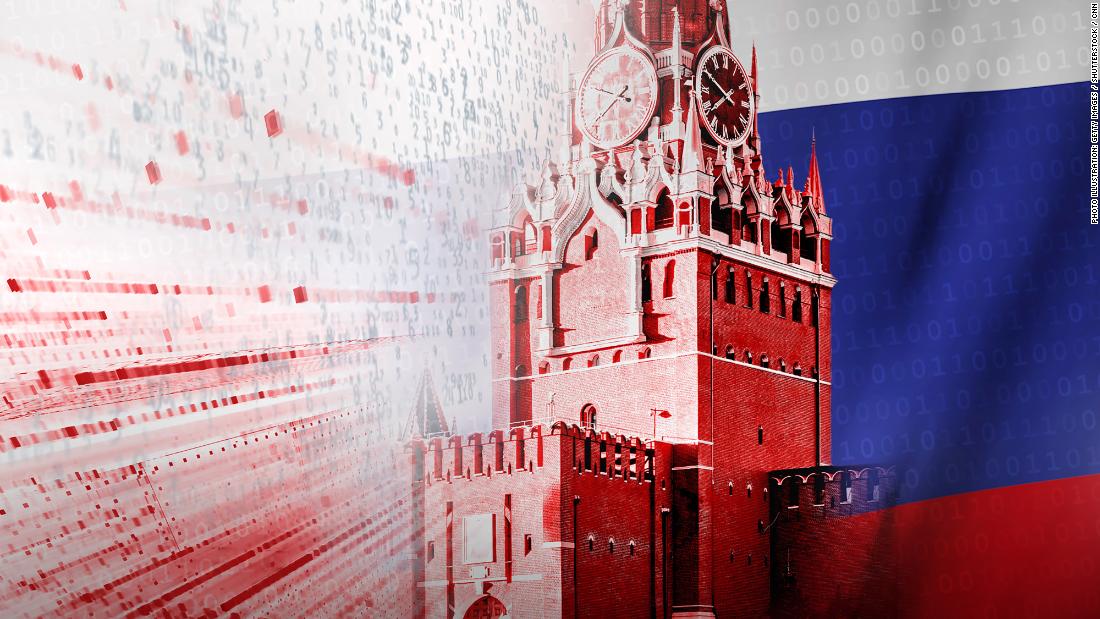
Britain to Carry Out Cyber Attacks Against Russia
Britain to carry out cyber attacks against Russia? The very idea sends shivers down your spine, doesn’t it? This isn’t some Hollywood blockbuster; it’s a chilling possibility with potentially devastating global consequences. We’re diving deep into the murky world of cyber warfare, exploring Britain’s capabilities, the potential targets within Russia, and the incredibly complex web of international laws and political ramifications that would inevitably follow.
Get ready for a rollercoaster ride through a world where the battlefield is the internet.
This post will unpack the “what ifs” – what kind of cyberattacks could Britain launch? What are the potential targets (think energy grids, financial institutions, even military networks)? And what would the response from Russia look like? We’ll examine the motivations behind such a move, the ethical considerations, and the potential for a full-blown cyber war. It’s a scenario with no easy answers, and the stakes couldn’t be higher.
The Allegation: Britain’s Cyber Capabilities Against Russia
The UK’s alleged capacity for cyber warfare against Russia is a complex issue, fueled by escalating geopolitical tensions and a growing reliance on digital infrastructure. While the specifics of British operations remain classified, analyzing publicly available information and expert assessments allows us to understand the potential scope and impact of such actions. The UK possesses sophisticated cyber capabilities, developed and honed over years of investment and experience in both offensive and defensive cyber operations.Britain’s potential cyberattacks against Russia could leverage a range of techniques, reflecting the diverse nature of modern cyber warfare.
Britain’s Cyber Warfare Capabilities
The UK’s National Cyber Security Centre (NCSC), a part of GCHQ, is at the forefront of the nation’s cyber defense and, implicitly, its offensive capabilities. While the specifics of offensive capabilities remain secret, the NCSC’s expertise in areas such as network intrusion, malware development, data exfiltration, and disinformation campaigns strongly suggests a robust offensive capacity. This expertise is backed by substantial investment in technological resources and highly skilled personnel, often drawing from the same talent pool as private sector cyber security firms.
Furthermore, close collaboration with Five Eyes intelligence partners provides access to shared intelligence and technology, amplifying Britain’s potential reach and effectiveness.
Potential Cyberattack Vectors Against Russia, Britain to carry out cyber attacks against russia
A potential British cyber campaign against Russia could utilize various methods. These could include Distributed Denial-of-Service (DDoS) attacks to disrupt online services, sophisticated malware designed to infiltrate and compromise critical systems, and targeted attacks against specific individuals or organizations to steal sensitive data or disrupt operations. The use of advanced persistent threats (APTs), characterized by long-term, stealthy intrusions, is also a possibility.
Furthermore, the UK might leverage its expertise in disinformation campaigns to sow discord and undermine public trust within Russia.
Potential Targets Within Russia’s Infrastructure
The potential targets for British cyberattacks are numerous and span various critical sectors. Targeting these sectors could have significant economic and political consequences.
| Target Type | Criticality | Vulnerability | Potential Impact |
|---|---|---|---|
| Energy Grid | High – essential for national functioning | Outdated infrastructure, reliance on aging technology, potential for cascading failures | Widespread power outages, economic disruption, social unrest |
| Financial Institutions | High – core of the Russian economy | Vulnerabilities in online banking systems, potential for data breaches, reliance on international payment systems | Financial instability, market crashes, erosion of public confidence |
| Military Command and Control | High – crucial for national security | Potential vulnerabilities in communication networks, reliance on outdated technology in some areas | Disruption of military operations, intelligence gathering, strategic decision-making |
| Government Agencies & Infrastructure | High – essential for governance and public services | Varied vulnerabilities depending on specific agency and infrastructure, potential for data breaches and leaks | Disruption of public services, loss of sensitive data, erosion of public trust in government |
Motivations and Justifications
The potential for Britain to engage in cyberattacks against Russia is a complex issue, fraught with ethical, legal, and political ramifications. Understanding the motivations behind such actions requires examining the evolving nature of the cyber domain, the history of state-sponsored cyberattacks, and the specific context of the UK-Russia relationship. While a direct military conflict remains highly undesirable, cyber warfare offers a potential alternative for responding to perceived threats and pursuing national interests.The primary justification for Britain undertaking cyberattacks against Russia would likely stem from a perceived need to deter or retaliate against Russian aggression.
This aggression could manifest in various forms, including disruptive cyberattacks against British infrastructure, interference in elections, or support for hostile actors. A proactive cyber defense, in the form of offensive capabilities, might be seen as necessary to protect national security and critical infrastructure. The argument would center on the principle of proportionate response, suggesting that cyberattacks represent a less escalatory option than conventional military action.
Examples of State-Sponsored Cyberattacks and Motivations
Several past cyber incidents attributed to state actors offer valuable insight into potential British motivations. The NotPetya attack of 2017, widely attributed to Russia, crippled global businesses and caused billions of dollars in damage. While the primary target was Ukraine, the widespread impact demonstrated the potential for significant collateral damage from such actions. The motivations behind NotPetya are debated, but likely involved a combination of disrupting Ukrainian infrastructure and demonstrating Russia’s cyber capabilities.
Similarly, the SolarWinds attack, also attributed to Russia, showcased the ability to compromise critical systems over an extended period, gathering intelligence and preparing for future disruptive actions. In contrast to these destructive attacks, some state-sponsored cyber operations focus on espionage and intelligence gathering, reflecting a different set of motivations. A British cyber offensive might mirror these various approaches, depending on the specific goals and targets.
For example, a response to election interference might focus on exposing disinformation campaigns, while a response to infrastructure attacks might prioritize disrupting the attacker’s capabilities.
Legal and Ethical Implications
The legal and ethical implications of British cyberattacks against Russia are significant. International law lacks a comprehensive framework for regulating cyber warfare, leading to ambiguity regarding what constitutes a legitimate act of self-defense or retaliation in the cyber domain. The potential for collateral damage, impacting innocent civilians or critical infrastructure outside the intended target, raises serious ethical concerns.
Furthermore, the attribution of cyberattacks is often challenging, leading to the risk of miscalculation and escalation. The potential for misattribution, or even the intentional creation of false flags, necessitates a cautious and well-considered approach to any cyber offensive. The proportionality of any response is crucial; a disproportionate response could be viewed as an act of aggression, rather than self-defense.
Political Ramifications
Domestically, a British cyber offensive against Russia could generate significant political debate. Public support would likely depend on the perceived justification for the action, the level of transparency surrounding the operation, and the perceived success in achieving its objectives. A poorly executed or unsuccessful operation could damage the government’s credibility and erode public trust. Internationally, the ramifications are equally complex.
Such an action could escalate tensions with Russia, potentially leading to further cyberattacks or even conventional military conflict. It could also strain relations with allies who may disagree with the use of offensive cyber capabilities. Conversely, a successful and carefully executed operation could deter future Russian aggression and strengthen Britain’s reputation as a capable defender of its national interests in the cyber domain.
News about Britain launching cyberattacks against Russia got me thinking about the complexities of modern warfare. It’s a whole different ball game compared to traditional conflicts, and reminds me of how rapidly technology is evolving, especially in software development. Check out this article on domino app dev the low code and pro code future to see how quickly things are changing even in the civilian sector – it’s amazing how this pace of innovation impacts everything, including the development of cyber warfare capabilities.
The international community’s reaction would be heavily influenced by the perceived legitimacy and proportionality of the British action.
Potential Consequences and Responses
The decision for Britain to engage in cyber warfare against Russia carries immense risk. While the potential benefits might seem appealing in the context of national security or responding to perceived aggression, the consequences of discovery and subsequent retaliation could be severe, potentially escalating into a wider conflict with unpredictable outcomes. The delicate balance of power in the digital realm makes this a particularly perilous game.A successful cyberattack, even if undetected, doesn’t guarantee a lack of consequences.
News of Britain planning cyberattacks against Russia got me thinking about our increasingly vulnerable digital world. Protecting sensitive government data requires robust security measures, which is why understanding the advancements in cloud security is crucial. Check out this insightful article on bitglass and the rise of cloud security posture management to see how companies are bolstering their defenses.
Ultimately, the effectiveness of Britain’s cyber offensive will depend heavily on the strength of its own digital infrastructure.
The attribution of cyberattacks is notoriously difficult, but the possibility of exposure remains a significant concern. Any evidence linking Britain to the attack could trigger a strong and immediate reaction from Russia, potentially damaging international relations and undermining Britain’s global standing. The reputational damage alone could be substantial, impacting trade relationships, diplomatic efforts, and public trust in the government’s handling of national security.
Consequences for Britain Following Discovery of Cyberattacks
Discovery of British involvement in cyberattacks against Russia would likely result in significant international condemnation. The scale of the fallout would depend on the nature and impact of the attack, as well as the evidence presented. For example, an attack targeting critical infrastructure would garner a far stronger reaction than a less impactful operation. The international community’s response would be shaped by its perception of the justification for the attack, and whether it was deemed proportionate to any perceived Russian aggression.
The potential for sanctions, diplomatic isolation, and a loss of international credibility is high. This could severely hamper Britain’s ability to act on the global stage, especially in areas where international cooperation is vital.
A Scenario: Russia’s Response to a British Cyberattack
Imagine a scenario where Britain launches a cyberattack against Russia’s energy grid, causing widespread disruption. Russia, possessing considerable cyber capabilities itself, would likely identify the source of the attack relatively quickly, given the sophistication of their intelligence agencies. The Kremlin’s response wouldn’t be limited to a simple retaliatory cyberattack. Instead, a multi-pronged approach would be highly probable, aimed at inflicting maximum damage while minimizing the risk of direct military conflict.
This response would likely involve a combination of overt and covert actions, carefully calibrated to achieve the desired impact.
Potential Retaliatory Measures by Russia
The potential retaliatory measures Russia might take are numerous and could significantly impact British infrastructure. These could include:
- Disruption of critical national infrastructure: Targeting energy grids, transportation networks, or financial systems could cause widespread chaos and economic damage. The impact could range from localized power outages to nationwide disruptions, depending on the scale and sophistication of the attack. This could mirror the potential disruption caused by the initial British attack. Consider the potential damage to the UK’s financial sector, or the crippling effects of a widespread power outage during winter.
- Targeted attacks against government systems: Disrupting government services, leaking sensitive information, or compromising national security systems could undermine public trust and create political instability. This could lead to significant operational difficulties, impacting everything from healthcare services to national defense.
- Cyber espionage and disinformation campaigns: Russia could engage in large-scale information warfare, spreading disinformation and propaganda to destabilize British society and undermine public confidence in the government. This could include the manipulation of social media, the spread of fake news, and targeted attacks against specific individuals or organizations.
- Economic sanctions and trade restrictions: Russia could impose economic sanctions or restrict trade with Britain, impacting various sectors of the British economy. This could have a severe impact on Britain’s trade relationships and economic stability.
Tit-for-Tat Escalation and Wider Conflict
A tit-for-tat escalation could easily spiral out of control. Each retaliatory action would likely provoke a further response, creating a dangerous cycle of escalating cyberattacks. This could quickly involve other nations, potentially drawing in NATO allies and escalating the conflict beyond the digital realm. The risk of miscalculation and accidental escalation into a conventional or even nuclear conflict is a very real possibility.
The lack of clear rules of engagement in cyberspace makes this a particularly dangerous scenario, highlighting the urgent need for international cooperation and the establishment of clear norms of behavior in the digital realm. The situation could quickly mirror the Cold War, with each side constantly monitoring and responding to the actions of the other, leading to a climate of fear and mistrust.
International Law and Cyber Warfare

The murky world of cyber warfare presents a significant challenge to international law. While traditional warfare is governed by relatively clear (though often debated) rules of engagement, the decentralized and often anonymous nature of cyberattacks makes establishing accountability and applying existing legal frameworks incredibly difficult. This lack of clarity creates a dangerous environment where states can engage in aggressive cyber actions with limited fear of immediate legal repercussions.The existing international legal framework relevant to cyber warfare is a patchwork of treaties, customary international law, and emerging norms.
The UN Charter, for example, prohibits the use of force against the territorial integrity or political independence of any state. However, the interpretation of “use of force” in the context of cyberattacks is highly contested. Some argue that only kinetic attacks constitute a use of force, while others contend that sufficiently damaging cyberattacks could also meet this threshold, particularly if they cause significant physical harm or loss of life.
The Geneva Conventions, while primarily focused on armed conflict, also offer some relevant principles concerning the protection of civilians and the prohibition of indiscriminate attacks, which could be argued to apply in certain cyber warfare scenarios. However, none of these instruments explicitly address the specifics of cyber operations.
Challenges in Attributing Cyberattacks to Specific State Actors
Attribution in cyber warfare is notoriously difficult. Sophisticated attackers often employ techniques like using proxies, masking their IP addresses, and employing advanced persistent threats (APTs) to obscure their origins. Even when evidence points towards a specific state, proving beyond a reasonable doubt that the attack was authorized or directed by the state’s government remains a significant hurdle. For example, the NotPetya attack in 2017, which caused billions of dollars in damages globally, was widely attributed to Russia, but definitively proving state sponsorship remains a complex task involving piecing together fragmented digital evidence and circumstantial intelligence.
This complexity often leads to a lack of accountability and fuels an escalation cycle.
The Role of International Organizations in Addressing Cyber Warfare Incidents
International organizations play a crucial, albeit limited, role in addressing cyber warfare incidents. The UN, through its various bodies, engages in discussions on international norms of responsible state behaviour in cyberspace. However, the UN’s ability to enforce any agreements or resolutions is limited by the principle of state sovereignty. Other organizations, such as the Organisation for Security and Co-operation in Europe (OSCE), have developed confidence-building measures and codes of conduct, aiming to promote transparency and reduce the risk of escalation.
However, these initiatives are often voluntary and lack robust enforcement mechanisms. The effectiveness of these organizations is hampered by the lack of a universally agreed-upon definition of cyber warfare and the challenges in attributing attacks.
A Hypothetical Legal Case: UK Cyberattack on Russia
Imagine a scenario where the UK launches a cyberattack against Russia’s critical infrastructure, targeting energy grids to disrupt their economic activity. The UK government might argue that the attack was a proportionate response to a prior Russian cyberattack against UK governmental systems, citing self-defence under Article 51 of the UN Charter as justification. They could further argue that the attack was targeted, limited in scope, and did not cause significant harm to civilian populations, thus adhering to principles of distinction and proportionality.However, Russia could counter by arguing that the UK’s actions constituted an unlawful use of force, violating the UN Charter.
They might argue that the attack was disproportionate to the initial provocation and that the economic disruption caused undue harm to Russian citizens. The lack of a clear international legal framework governing cyber warfare would make determining the legality of the attack exceptionally challenging. The International Court of Justice (ICJ) might be called upon to adjudicate the dispute, but its jurisdiction would depend on the consent of both states and the precise legal arguments presented.
The outcome would hinge heavily on the court’s interpretation of “use of force” in the context of cyber operations and its assessment of the proportionality and necessity of the UK’s response. This hypothetical case highlights the urgent need for a clearer and more robust international legal framework to govern state behaviour in cyberspace.
Public Perception and Media Coverage
The potential public reaction to news of British cyberattacks against Russia is complex and multifaceted, heavily influenced by pre-existing attitudes towards Russia, the perceived justification for the attacks, and the broader political climate. Public opinion will be shaped by the narrative presented by the government and the media, and the level of transparency surrounding the operation.Public reaction will likely be divided.
Supporters of a strong stance against Russia may view the cyberattacks as a necessary and proportionate response to Russian aggression, potentially even expressing national pride. Conversely, those critical of government actions, or those concerned about escalating conflict, may express disapproval, raising concerns about the potential for unintended consequences and civilian harm. The level of public support will depend heavily on the government’s communication strategy.
Public Reaction Scenarios
The British public’s response could range from cautious support to outright condemnation, depending on the context and the information available. A carefully managed and justified public communication strategy, emphasizing national security and proportionate response, would likely garner more support than a secretive or poorly explained operation. Conversely, a lack of transparency or a perceived escalation of conflict could lead to significant public backlash and damage the government’s credibility.
The reaction will also depend on the perceived success or failure of the cyberattacks themselves. A demonstrably successful operation targeting key Russian infrastructure might generate a sense of satisfaction and even national pride, while a perceived failure could lead to criticism and accusations of incompetence.
Media Portrayal and Framing
Media coverage will play a crucial role in shaping public perception. Similar incidents, such as the NotPetya cyberattack (attributed to the US/Ukraine), have been portrayed differently across various media outlets. Some framed it as a justified response to Russian aggression, highlighting the damage inflicted on Russian infrastructure. Others emphasized the potential for collateral damage and the risk of escalating cyber warfare.
The framing of the narrative, whether focusing on national security or the ethical implications, will significantly influence public opinion.
Impact on Public Trust
The government’s handling of the news and the subsequent explanation will significantly impact public trust. Transparency and open communication about the motivations, targets, and potential consequences of the cyberattacks will be crucial in maintaining public support. Conversely, a secretive approach or a perceived attempt to mislead the public could severely damage public trust and potentially lead to political fallout.
The government’s response to any criticism or questions will also be vital in managing public perception. Past instances of government secrecy or misinformation have led to erosion of public trust, setting a precedent for how the public might react to this situation.
Potential Narratives and Misinformation
Several narratives could emerge, each with the potential for misinformation and propaganda.* Narrative 1: “A Necessary Response”: This narrative would portray the cyberattacks as a proportionate and justified response to Russian aggression, emphasizing the need to protect British national security and deter further hostile actions. The accompanying image could be a stylized graphic showing a shield protecting Britain from cyberattacks originating from Russia.* Narrative 2: “An Act of War”: This narrative, potentially pushed by pro-Russian or anti-interventionist groups, would frame the cyberattacks as an act of aggression that escalates tensions and increases the risk of wider conflict.
The image might depict a stylized nuclear explosion or a world map highlighting escalating tensions between Britain and Russia.* Narrative 3: “A Reckless Gamble”: This narrative, possibly advanced by political opponents, would focus on the potential for unintended consequences, collateral damage, and the risks of escalating a cyber war. The image could be a blurred, chaotic image representing the unpredictable nature of cyber warfare, with icons representing civilian casualties or disrupted services.These narratives, and others, could be amplified by state-sponsored or independent disinformation campaigns, making it crucial for the public to critically evaluate information sources and be aware of the potential for manipulation.
Ultimate Conclusion: Britain To Carry Out Cyber Attacks Against Russia

So, Britain launching cyberattacks against Russia – a real possibility or just a far-fetched scenario? The truth is, it’s a complex issue with no simple answers. We’ve explored the potential targets, the motivations, the legal and ethical grey areas, and the potentially catastrophic consequences. While the specifics remain shrouded in secrecy, the potential for escalation is undeniable.
One thing is clear: the digital battlefield is a new and terrifying frontier, and the stakes are incredibly high.
Essential Questionnaire
What specific laws govern cyber warfare?
International law on cyber warfare is still developing. There’s no single, universally agreed-upon treaty. Existing laws like the UN Charter and the Geneva Conventions are being interpreted and adapted to the digital realm, but it’s a complex and contested area.
How would the public react in Britain?
Public reaction would likely be divided. Some might support the action, viewing it as necessary to counter Russian aggression. Others would express concerns about the ethical implications and potential for escalation. Media coverage would be intense, with strong opinions on both sides.
Could a cyberattack trigger a wider conflict?
Absolutely. A significant cyberattack could be seen as an act of war, triggering a retaliatory response and potentially escalating into a wider conflict, possibly even conventional warfare. The risk of miscalculation and unintended escalation is very real.





